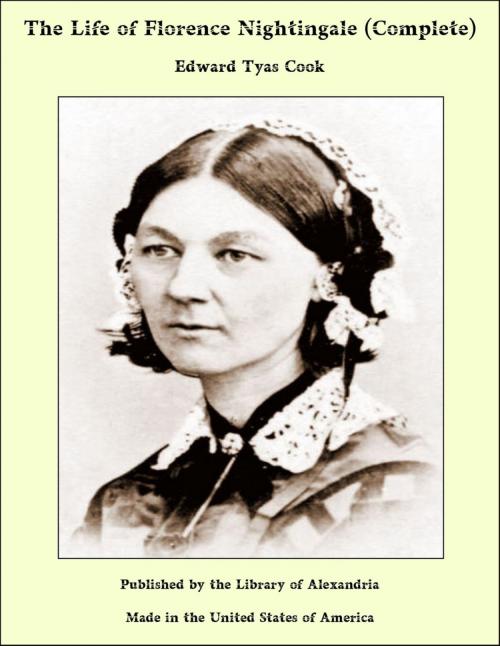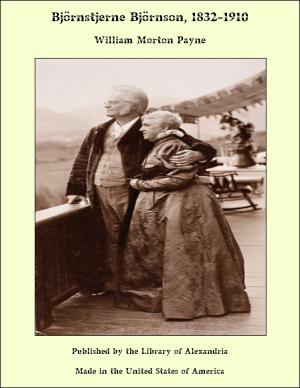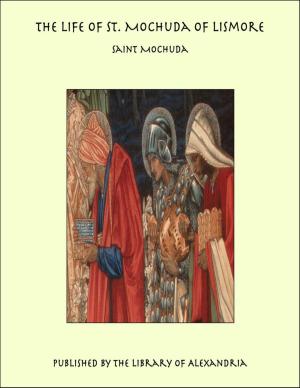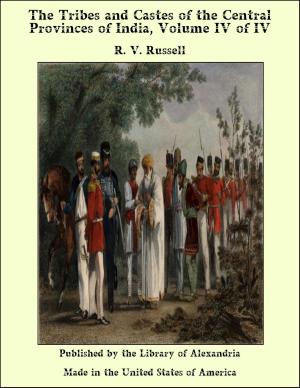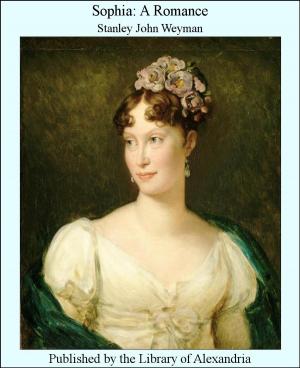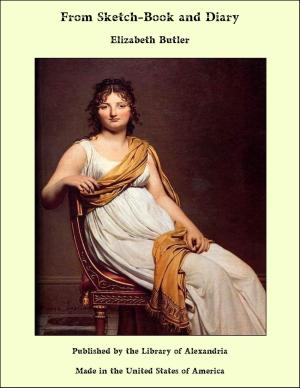The Life of Florence Nightingale (Complete)
Nonfiction, Religion & Spirituality, New Age, History, Fiction & Literature| Author: | Sir Edward Tyas Cook | ISBN: | 9781465539540 |
| Publisher: | Library of Alexandria | Publication: | March 8, 2015 |
| Imprint: | Language: | English |
| Author: | Sir Edward Tyas Cook |
| ISBN: | 9781465539540 |
| Publisher: | Library of Alexandria |
| Publication: | March 8, 2015 |
| Imprint: | |
| Language: | English |
Men and women are divided, in relation to their papers, into hoarders and scatterers. Miss Nightingale was a hoarder, and as she lived to be 90 the accumulation of papers, stored in her house at the time of her death, was very great. The papers referring to years up to 1861 had been neatly done up by herself, and it was evident that not everything had been kept. After that date, time and strength to sort and weed had been wanting, and Miss Nightingale seems to have thrown little away. Even soiled sheets of blotting-paper, on which she had made notes in pencil, were preserved. By a Will executed in 1896 she had directed that all her letters, papers, and manuscripts, with some specific exceptions, should be destroyed. By a Codicil executed in the following year she revoked this direction, and bequeathed the letters, papers, and manuscripts to her cousin, Mr. Henry Bonham Carter. After her death the papers were sorted chronologically by his direction, and they have formed the principal foundation of this Memoir. Of expressly autobiographical notes, Miss Nightingale left very few. At the date of the Codicil above mentioned she seems to have contemplated the probability of some authoritative record of her life; for in that year she wrote a short summary of what she called “My Responsibility to India,” detailing her relations with successive Secretaries of State, Governors-General, and other administrators. Her memory in these matters was still accurate, for the summary is fully borne out by letters and other papers of the several dates: it adds some personal details. In private letters she sometimes recounted, at later times, episodes or experiences in her life, but such references are few. Nor, except for a few years, did Miss Nightingale keep any formal diary; and during the Crimean episode she was too incessantly busy with her multitudinous duties to find time for many private notes. The principal authority for Miss Nightingale's Life is thus the collection of papers aforesaid, and these are very copious in information. The records, in one sort or another, of her earlier years are full. The papers relating to her work during the Crimean War are voluminous, and I have supplemented the study of these by consulting the official documents concerning Miss Nightingale's mission which are preserved, among War Office papers, in the Public Record Office. Her papers relating to public affairs during the years 1856 to 1861 are also very voluminous. After the latter date she seems, as already stated, to have kept almost everything, even every advertisement, that she received. She often made notes for important letters that she sent, and sometimes kept copies of them. Of official documents, of printed memoranda, pamphlets, reports, and returns, she accumulated an immense collection. And though she was not a regular diarist, she was in the habit of jotting down on sheets of notepaper her engagements, impressions, thoughts, meditations, as also in many cases reports of conversations.
Men and women are divided, in relation to their papers, into hoarders and scatterers. Miss Nightingale was a hoarder, and as she lived to be 90 the accumulation of papers, stored in her house at the time of her death, was very great. The papers referring to years up to 1861 had been neatly done up by herself, and it was evident that not everything had been kept. After that date, time and strength to sort and weed had been wanting, and Miss Nightingale seems to have thrown little away. Even soiled sheets of blotting-paper, on which she had made notes in pencil, were preserved. By a Will executed in 1896 she had directed that all her letters, papers, and manuscripts, with some specific exceptions, should be destroyed. By a Codicil executed in the following year she revoked this direction, and bequeathed the letters, papers, and manuscripts to her cousin, Mr. Henry Bonham Carter. After her death the papers were sorted chronologically by his direction, and they have formed the principal foundation of this Memoir. Of expressly autobiographical notes, Miss Nightingale left very few. At the date of the Codicil above mentioned she seems to have contemplated the probability of some authoritative record of her life; for in that year she wrote a short summary of what she called “My Responsibility to India,” detailing her relations with successive Secretaries of State, Governors-General, and other administrators. Her memory in these matters was still accurate, for the summary is fully borne out by letters and other papers of the several dates: it adds some personal details. In private letters she sometimes recounted, at later times, episodes or experiences in her life, but such references are few. Nor, except for a few years, did Miss Nightingale keep any formal diary; and during the Crimean episode she was too incessantly busy with her multitudinous duties to find time for many private notes. The principal authority for Miss Nightingale's Life is thus the collection of papers aforesaid, and these are very copious in information. The records, in one sort or another, of her earlier years are full. The papers relating to her work during the Crimean War are voluminous, and I have supplemented the study of these by consulting the official documents concerning Miss Nightingale's mission which are preserved, among War Office papers, in the Public Record Office. Her papers relating to public affairs during the years 1856 to 1861 are also very voluminous. After the latter date she seems, as already stated, to have kept almost everything, even every advertisement, that she received. She often made notes for important letters that she sent, and sometimes kept copies of them. Of official documents, of printed memoranda, pamphlets, reports, and returns, she accumulated an immense collection. And though she was not a regular diarist, she was in the habit of jotting down on sheets of notepaper her engagements, impressions, thoughts, meditations, as also in many cases reports of conversations.
